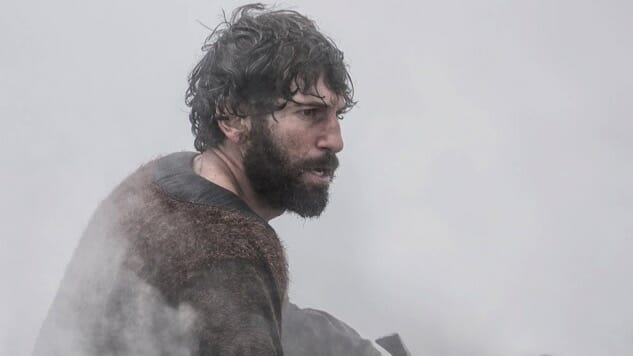Jon Bernthal Talks Pilgrimage, The Punisher and More at the Tribeca Film Festival

Jon Bernthal cannot be stopped and doesn’t intend to be. He piles on so many projects that he can barely keep them all gathered in his head and applies his workhorse attitude to each, refusing to be defined by any. The actor playing Marvel’s The Punisher and a myriad of film roles has two movies at the Tribeca Film Festival: Pilgrimage, a period quest about Irish monks, and Sweet Virginia, a slow-burn Appalachian crime drama. Paste got to sit down with the actor between screenings of his own movies. He leans back in his chair and kicks his feet up, hands always moving, contemplating. Sometimes he’ll get onto something in conversation that lights up a fire and he’ll hunch over, staring you down, making sure you get to the level he’s on. Maybe I should just let him tell you:
Paste Magazine: With Pilgrimage, you play a mute, so the entire role is about physicality. How was that?
Jon Bernthal: That’s why I wanted to do it, the challenge. The script blew me away and the thing I noticed right away is that there’s like seven different languages spoken in the movie. And then there’s this mute that has to develop his own language. So how do you take a character that’s central to the story and give him no dialogue? First I had to get to know the character from the inside, and then create a language for him. So I decided to take a vow of silence, and be silent on set and off.
At first it was like this exercise in method acting and I thought it was annoying everyone. We were living in the middle of nowhere, 30 miles from every town, sleeping under the same roof, eating the same meals with each other. So at the end of the day, I was the one sitting at the table, the silent guy. It was isolating, and weird and a little mysterious. But what I learned was that when you stop talking—one—you hear everything and see everything. You become invisible and learn people. It becomes as much a power as it can potentially appear meek. At the same time, you divorce yourself from your wants and needs.
-

-

-

-

-

-

-

-

-

-

-

-

-

-

-

-

-

-

-

-

-

-

-

-

-

-

-

-

-

-

-

-

-

-

-

-

-

-

-

-








































